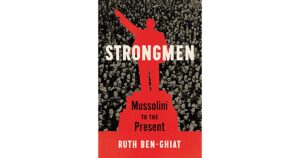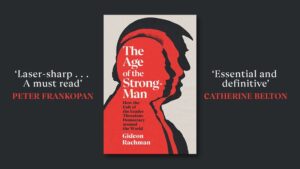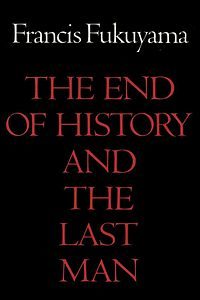 At the moment democracies look like they are winning the struggle with authoritarianism. Both autocrats and demagogues have had a bad year. Only last week Peru’s president was arrested after trying to dissolve parliament, and Germany foiled a coup plot, notes Reuters analyst Hugo Dixon:
At the moment democracies look like they are winning the struggle with authoritarianism. Both autocrats and demagogues have had a bad year. Only last week Peru’s president was arrested after trying to dissolve parliament, and Germany foiled a coup plot, notes Reuters analyst Hugo Dixon:
This marks a sharp contrast to the mood earlier this year, when the Financial Times columnist Gideon Rachman published “The Age of the Strongman: How the Cult of the Leader Threatens Democracy Around the World”…..Autocrats tend to make mistakes – and persist with their errors for a long time – because it’s dangerous to oppose them. They also snuff out the creative thinking that keeps economies vibrant.
 Overall, it can be said that it is not democracies but autocracies that are now exposed to severe challenges, adds Akihiko Tanaka, adding that the flaws of authoritarian regimes have surfaced in various forms.
Overall, it can be said that it is not democracies but autocracies that are now exposed to severe challenges, adds Akihiko Tanaka, adding that the flaws of authoritarian regimes have surfaced in various forms.
Of course, it is possible that authoritarian regimes may further intensify repression of human rights at home as they have their backs against the wall, he writes for Asia News Network. There are no obvious countermeasures to offer a quick remedy. Even so, it is important to strengthen and uphold support for people who dare to defend freedoms and democracy throughout the world.
This, at a bare minimum, is a role Japan and other stable democracies should keep playing, Tanaka concludes.

National Endowment for Democracy (NED)
The world has seen a steady rise in illiberal democracy, alliances among autocrats and democratic backsliding in recent years, said Reenan Inan. This has especially been on display in Europe, she told today’s virtual dialogue organized by Foreign Policy and the MartensCentre (below).
But, unlike during the Cold War, democracies are failing to fashion a compelling script or narrative to challenge alternative ideologies, the forum heard.
“On the streets of Iran or or people in Ukraine that’s the first word on their lips: freedom,” said Oxford University’s Timothy Garton Ash. “So (we must) craft our narratives of sovereignty and freedom so they really have more traction with the swing states in the wider world.”
 But categorizing democracies’ conflict with autocracies as a Cold War is “self-limiting” and can distract from the main issues, said Congressman Bill Keating. “This is a multifaceted, multi-front war that’s global in nature.”
But categorizing democracies’ conflict with autocracies as a Cold War is “self-limiting” and can distract from the main issues, said Congressman Bill Keating. “This is a multifaceted, multi-front war that’s global in nature.”
“We are already thinking about the next potential hypothetical war in Taiwan, yet we haven’t found a solution to what’s happening today,” said Alina Polyakova, the head of CEPA, a National Endowment for Democracy (NED) partner. “This is a real problem because everything that’s happening in Ukraine is having global effects.”
While the Ukraine war has produced countless tragedies, it will show Francis Fukuyama’s End-of-History thesis to have been more right than wrong, says Sergei Guriev. He argued that communism’s implosion had ushered in a world where democracies with market economies would be preferred over alternative forms of government.
While Russia’s war of aggression never should have happened, it clearly is an exception that proves Fukuyama’s rule. It has caused enormous suffering for Ukrainians, but they have fought courageously with the knowledge that history is on their side, he writes for Project Syndicate.
#Autocrats tend to make mistakes – and persist with their errors for a long time – because it’s dangerous to oppose them. They also snuff out the creative thinking that keeps economies vibrant, @Reuters‘ @Hugodixon writes. https://t.co/1L3EsPYAgB
— Democracy Digest (@demdigest) December 12, 2022







